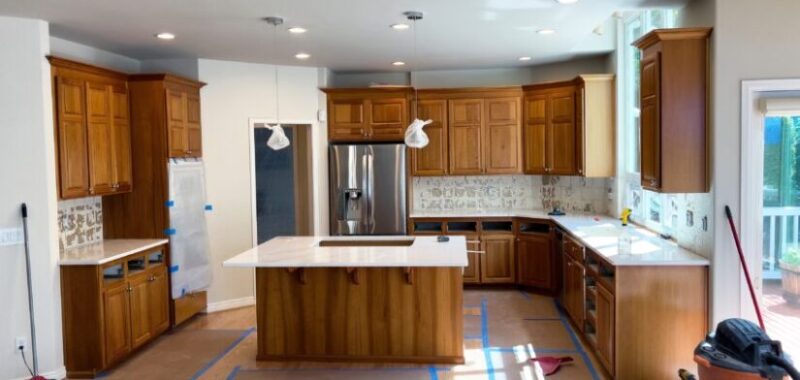Middle-class homeowners across the UK are postponing their kitchen renovation plans as fears mount over potential tax hikes in the forthcoming October Budget.
The possibility of higher taxes, signalled by shadow chancellor Rachel Reeves, has led to a marked decline in consumer confidence, according to kitchen retailers.
Jamie Everett, co-founder of bespoke kitchen manufacturer Naked Kitchens, noted a sharp drop in orders after a strong start to the year. He said: “In September, it’s like somebody just turned the tap off. The Budget is the big roadblock right now.”
Many customers are adopting a wait-and-see approach, concerned that tax increases could impact their disposable income. Kitchen retailers such as Thomas Matthew in Dorset report that some customers have explicitly stated they are waiting for the Budget before proceeding with orders.
The uncertainty has had a knock-on effect on consumer confidence across the wider home improvement sector. According to GfK’s consumer confidence index, there has been a notable drop in sentiment, plunging seven points in September to -20, indicating that households are feeling less secure about their finances.
Retailers are also grappling with the aftershocks of supply chain disruptions and rising costs from recent years. Vince Gunn, CEO of Harvey Jones, observed that the positioning of the Budget has further diluted consumer confidence, despite a relatively positive economic outlook earlier in the year.
Nick Glynne, CEO of Buy It Direct Group, which sells large home items such as appliances and furniture, echoed these concerns, citing a 9% decline in website traffic following public discussions about potential tax increases. “We’re dependent on excess cash,” Glynne said, emphasising the impact that fiscal uncertainty is having on high-ticket purchases like kitchens.
As the sector waits for clarity in the autumn Budget, kitchen retailers remain cautious, with many anticipating that a difficult market may persist for up to six months if significant tax hikes are introduced. The potential strain on consumer spending could further exacerbate challenges for businesses already on the edge following years of economic turbulence.

